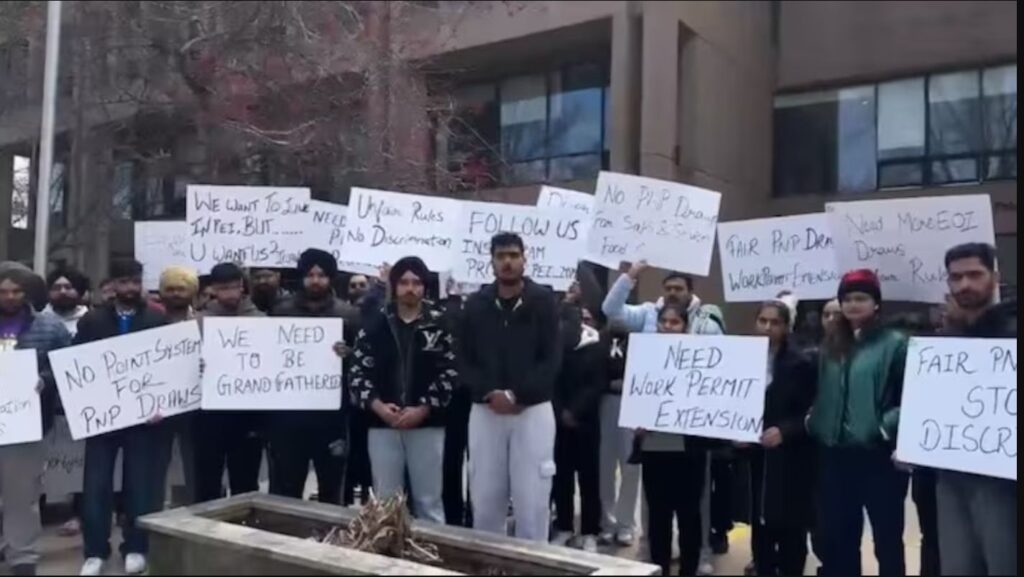Canada, is known for its strong labor rights protections, has recently taken significant steps toward cracking down on exploitative employment practices that affect vulnerable groups such as low-wage workers particularly newcomers and temporary foreign workers, work visa holders.
As the cheaper labor has started affecting the native population and unemployment touching high levels, the issue of cheaper immigrant labor has become a pressing concern, with instances of workers being subjected to unethical working conditions.
Exploitative Employment Practices in Canada:
Exploitative employment practices often involve unethical or illegal methods of hiring labor while minimizing compensation, disregarding workers’ rights, and imposing unsafe working conditions, especially to workers with limited language proficiency or knowledge of Canadian labour laws. Some of the most common examples of exploitative employment practices include:
Underpayment of Wages:
One of the most prevalent forms of exploitation in Canada is underpayment of wages. This occurs when employers pay workers below the minimum wage or withhold their earnings altogether. Temporary workers, particularly those on work permits, are often vulnerable to these types of abuses as they are less likely to report mistreatment for fear of losing their jobs or jeopardizing their immigration status.
Unsafe Working Conditions:
Employers who neglect to maintain safe working environments put workers at risk of physical harm or illness. In certain industries, such as construction, agriculture, and hospitality, workers may be exposed to hazardous conditions, and employers may fail to provide proper safety training or equipment. This is especially common among immigrant workers who may be unaware of their rights or may fear retaliation.
Unfair Working Hours:
Many low-wage and temporary workers are forced to work excessive hours without receiving the appropriate overtime pay. In some cases, employees may not be given proper breaks or rest periods.
Contract Subversion:
Some employers may offer workers temporary contracts with the intention of subverting labor laws. They may promise permanent employment, only to deny it once the worker has fulfilled the contract terms. This is a way for employers to exploit workers while avoiding long-term commitments such as benefits or pension contributions.
Threats, Intimidation, and Abuse:
Particularly vulnerable workers, such as immigrant laborers or those in temporary work positions, may experience various forms of coercion. This could involve threats of deportation or termination if workers assert their rights or attempt to report mistreatment.
Misclassification of Employees:
Employers sometimes misclassify workers as independent contractors rather than employees to avoid providing them with benefits and protections. This leaves workers without access to healthcare, workers’ compensation, unemployment insurance, and other rights.
Canada’s Crackdown on Low-Wage Workers and Temporary Work Visa Holders
As part of its efforts to curb exploitative practices, the Canadian government has been focusing on the protection of low-wage workers and temporary foreign workers. The government is becoming increasingly aware of how these workers are often exploited by employers who are willing to take advantage of their vulnerability.
To address these issues, the Canadian government is placing an emphasis on ensuring that employers comply with minimum wage laws and pay workers fairly. The increase in fines for employers caught violating these laws serves as a deterrent. Additionally, these efforts are being enforced through dedicated labor inspectors, who monitor workplaces for violations of wage, working hours, and safety regulations.
Employers must now demonstrate that they have made efforts to hire Canadians before they can hire foreign workers, ensuring that TFWs are not being used to displace local workers. The government has implemented stronger requirements for employers to justify their need for foreign labor. Although this rule has been in effect previously, its enforcement is now considerably more stringent.
Ensuring Timely Departure:
Another major part of Canada’s crackdown on temporary foreign workers is ensuring that temporary foreign workers leave Canada once their visa term is over. The government is tightening enforcement to prevent workers from overstaying their visas or becoming undocumented residents. This policy is to ensure that temporary workers do not become permanent fixtures in industries that rely on short-term labor.
Enforcement of Removal Orders:
The Canadian government has begun deporting people who don’t meet visa requirements or are otherwise not allowed to stay in Canada.
Monitoring Visa Fraud:
In addition to holding employers accountable, the Canadian government is cracking down on instances of visa fraud or abuse. Some employers or agents may engage in fraudulent practices to exploit workers, including promising permanent residency or offering fake work opportunities in exchange for money.
Besides, Framing Policies to Encourage Voluntary Departure of Immigrant Workers is on anvil to preserve job opportunities for Canadians.

